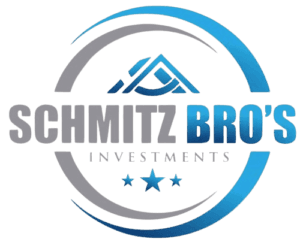When considering how to sell my house without a real estate agent, it is crucial to understand the entire process involved in selling your home. This knowledge not only empowers you to make informed decisions but also enables you to streamline the transaction, ensuring a faster sale.
Here’s a step-by-step guide to help you navigate through:
- Preparation: Start by assessing the condition of your home. Make necessary repairs and improvements to enhance its appeal. This is particularly important if your property is distressed, as buyers typically seek homes that require minimal work.
- Pricing: Research the market to determine a competitive price for your home. Look at comparable sales in your area to set a price that reflects your home’s value but also attracts potential buyers.
- Marketing: Create an effective marketing strategy. Use online listings, social media, and word of mouth to reach potential buyers. High-quality photos and detailed descriptions can significantly enhance your home’s visibility.
- Negotiation: Be prepared to negotiate offers. Understand your bottom line and be flexible to close the deal. Remember, negotiations can make or break a sale.
- Closing: Once you accept an offer, you’ll need to handle the closing process. This includes paperwork, inspections, and potentially working with a title company.
By familiarizing yourself with these steps, you can confidently approach the sale of your home without the need for a real estate agent. If you find yourself in need of a fast sale, we buy houses fast, we buy distressed properties, we buy ugly houses. Contact us today to learn more!
Benefits of Selling Without a Real Estate Agent
Choosing to sell your home without a real estate agent comes with a myriad of benefits that can significantly enhance your selling experience. Understanding these advantages can help you make an informed decision and maximize your profit.
Here are some key benefits:
- Increased Profits: By eliminating the agent’s commission, which typically ranges from 5% to 6% of the sale price, you keep more money in your pocket. This can be particularly beneficial if you are selling a distressed property.
- Full Control: Selling your house on your own gives you complete control over the process. You decide on the pricing, marketing strategies, and negotiations. This autonomy allows you to tailor the sale to your specific needs and timeline.
- Direct Communication: Without a middleman, you can communicate directly with potential buyers. This can lead to clearer discussions, quicker responses, and a more personal touch to the selling experience.
- Flexible Showings: You can schedule showings at times that are convenient for you, rather than adhering to an agent’s availability. This flexibility can lead to more potential buyers seeing your home.
- Speed of Sale: By handling the sale yourself, you can often expedite the selling process. You’re free to make decisions quickly, which is particularly advantageous if you need to sell your home fast.
These benefits make selling your home without a real estate agent a compelling option, especially for homeowners familiar with their property and the local market.
Steps to Prepare Your Home for Sale
Preparing your home for sale is a crucial step that can significantly impact the speed and price of the sale. A well-prepared home attracts more buyers and can lead to higher offers. Here are the essential steps to get your home ready:
- Declutter and Depersonalize: Begin by removing personal items and excessive clutter. This allows potential buyers to envision themselves in the space. Consider packing away family photos, collectibles, and any items that make the home feel overly personalized.
- Deep Clean: A clean home creates a positive first impression. Invest time in deep cleaning every corner, including carpets, windows, and appliances. Consider hiring professional cleaners if necessary to ensure every surface sparkles.
- Make Repairs: Address any minor repairs, such as leaky faucets, squeaky doors, or chipped paint. These small fixes can enhance the overall appeal of your home and prevent buyers from perceiving it as neglected.
- Enhance Curb Appeal: The exterior of your home is the first thing buyers will see, so make it inviting. Mow the lawn, trim hedges, plant flowers, and touch up the paint on the front door. A well-maintained exterior can make a significant difference in attracting buyers.
- Stage the Home: Consider staging your home to highlight its best features. This can involve rearranging furniture, adding decorative elements, or even renting furnishings to create an inviting atmosphere. A staged home can help buyers visualize how they would use the space.
- Set the Right Price: Research comparable homes in your area to determine a competitive price. An accurately priced home will attract more buyers and facilitate a quicker sale.
By following these steps, you can present your home in the best possible light, making it more appealing to potential buyers and increasing your chances of a successful sale.
How to Price Your Home Competitively
Pricing your home competitively is essential for attracting buyers quickly and maximizing your sale profits. A well-researched price not only draws interest but also sets the stage for negotiations. Here are key strategies to help you price your home effectively:
- Conduct Market Research: Start by researching the local real estate market. Look at recently sold homes in your neighborhood that are similar in size, condition, and features. This will provide a baseline for your pricing strategy.
- Consider Home Appraisal: Hiring a professional appraiser can give you an unbiased valuation of your home. An appraisal takes into account various factors like location, condition, and market trends, providing a solid foundation for your pricing.
- Evaluate Current Listings: Analyze active listings in your area to understand how your home compares. Take note of homes with similar characteristics and see how long they’ve been on the market. This insight can help you gauge competitive pricing.
- Account for Unique Features: If your home has unique features or upgrades, such as energy-efficient appliances, a renovated kitchen, or a landscaped garden, these can justify a higher asking price. Make sure to highlight these benefits in your listing.
- Stay Flexible: Be open to adjusting your price based on market feedback. If your home is not attracting interest, consider lowering the price slightly to entice potential buyers. Conversely, if there’s high demand, you might be able to increase your asking price.
- Consult with Real Estate Professionals: Even if you’re selling without a real estate agent, seeking advice from local experts can provide valuable insights. They can offer guidance on market conditions and pricing strategies.
By employing these strategies, you can set a competitive price that reflects your home’s value while appealing to potential buyers, ultimately leading to a swift sale.
Effective Marketing Strategies for Home Sales
To sell your home swiftly and efficiently, implementing effective marketing strategies is crucial. With the right approach, you can reach a wider audience and attract serious buyers. Here are some proven marketing tactics to consider:
- Utilize Online Listings: List your home on popular real estate websites like Zillow, Realtor.com, and Craigslist. Use high-quality photos and compelling descriptions to showcase your home’s best features. A well-crafted listing can significantly boost your visibility among potential buyers.
- Leverage Social Media: Social media platforms such as Facebook, Instagram, and Twitter are excellent tools for sharing your home sale. Create engaging posts that highlight your property’s unique aspects, and consider using targeted ads to reach local buyers.
- Create Virtual Tours: In today’s digital age, virtual tours are becoming increasingly popular. Consider creating a video walkthrough of your home, allowing potential buyers to explore the space from the comfort of their own homes. This can enhance interest and make your listing stand out.
- Host Open Houses: If possible, organize open houses to attract local buyers. Provide a welcoming environment with refreshments and informative materials about your home. This allows potential buyers to experience the property firsthand and ask questions.
- Network with Local Influencers: Reach out to local real estate bloggers or influencers who can help promote your listing. Their established audience can broaden your reach and attract more potential buyers.
- Print Marketing Materials: Don’t underestimate the power of traditional marketing. Create flyers or brochures that can be distributed in your neighborhood or local businesses. Include attractive visuals and essential information about your home.
By employing a combination of these marketing strategies, you will enhance your chances of selling your home quickly and for a desirable price, ensuring a successful transaction.
Closing the Sale and Finalizing the Transaction
Once you have attracted potential buyers and received offers, the next step is closing the sale and finalizing the transaction. This critical phase involves several steps that ensure a smooth transition of ownership. Understanding the process can help you navigate it with confidence.
First, once you accept an offer, you will enter into a purchase agreement with the buyer. This legally binding document outlines the terms of the sale, including the sale price, closing date, and any contingencies. It’s essential to review this agreement carefully to ensure all details are correct.
Next, the buyer will typically conduct a home inspection and appraisal. These assessments help verify the property’s condition and determine its market value. Be prepared for negotiations if any issues arise during these evaluations. Buyers may request repairs or ask for a price reduction based on the findings.
After these steps are completed, you will move on to the closing process, where all parties meet to finalize the sale. During the closing meeting, you will sign a variety of documents, transferring ownership to the buyer. It’s advisable to have a legal representative or a title company present to assist with this process and ensure that all documents are correctly executed.
Finally, once everything is signed and funds are exchanged, you will hand over the keys to the new owner, completing the sale. If you’re feeling overwhelmed by this process, remember that you can simplify the transaction by working with a home buying company.
We buy houses fast, we buy distressed properties, we buy ugly houses. If you want to avoid the hassle of traditional sales, consider reaching out to us today!





